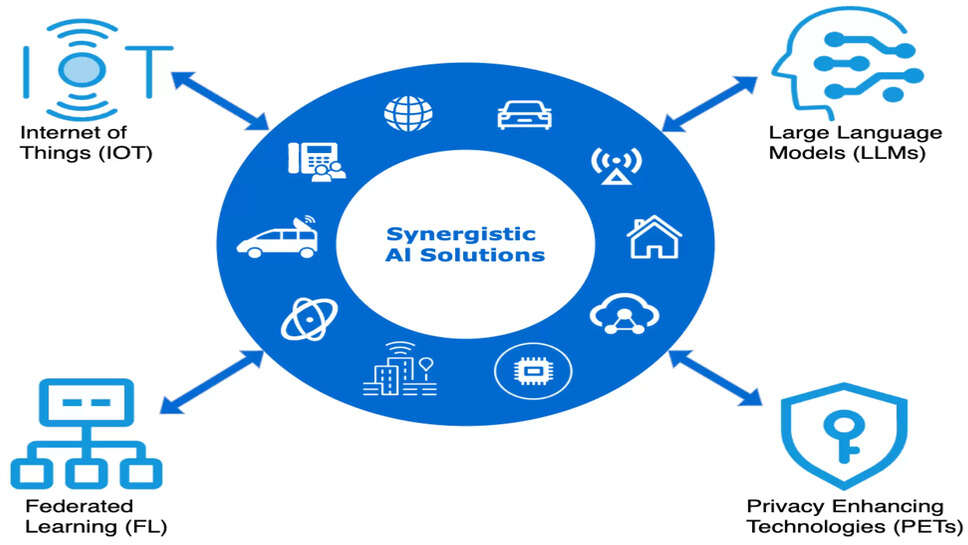India CCI Probe Prompts Google to Rethink Real-Money Gaming App Policy

As the heat from India’s antitrust watchdog intensifies, tech giant Google has proposed a new policy framework for real-money gaming (RMG) apps on its Play Store. The proposal is seen as a strategic move to address concerns raised by the Competition Commission of India (CCI), which is currently probing whether Google's existing policies amount to unfair and discriminatory practices against app developers in the country’s booming online gaming sector.
The development comes at a time when India is witnessing explosive growth in real-money gaming apps, driven by fantasy sports, poker, rummy, and casual skill-based games. With high stakes involved for both developers and consumers, Google’s proposed changes could significantly impact how gaming businesses operate on Android, the dominant mobile OS in India.
The Heart of the Issue
Google's Play Store policies have long restricted real-money gaming apps that offer cash winnings or monetary prizes, citing concerns around user protection, legality across jurisdictions, and monetization policies. Developers have repeatedly complained that these restrictions are selectively enforced, favor foreign platforms, and create an uneven playing field.
In particular, Indian developers allege that Google’s commission-based model and app listing policies effectively bar or disadvantage local gaming apps from scaling freely on Android, thereby impacting innovation and growth in one of the world’s largest digital markets.
This tension reached a tipping point earlier this year when the CCI initiated a formal investigation into whether Google was abusing its dominant position in the mobile app distribution market—especially in relation to RMG apps.
What the New Framework Proposes
According to sources familiar with the matter, Google’s proposal aims to establish a transparent, category-specific policy that permits real-money gaming apps under strict compliance conditions. Key elements reportedly under consideration include:
-
Separate onboarding process for licensed RMG apps, subject to region-specific legal compliance.
-
Differentiated commission models, potentially reducing the standard 15–30% fee for approved skill-based gaming apps.
-
Updated content moderation and user safety protocols, tailored for the high-risk nature of real-money games.
-
Geofencing mechanisms to restrict app access in states or regions where real-money gaming is banned.
-
Developer self-declaration requirements related to game type, payout mechanisms, and regulatory adherence.
Google has also indicated a willingness to pilot these changes in India before expanding to other jurisdictions. The company sees this as a way to balance regulatory expectations, developer interests, and user safety—all while attempting to avoid further legal or reputational damage.
India’s Unique Legal Landscape
One of the challenges in implementing a consistent RMG policy in India is the fragmented legal landscape. While the Supreme Court has ruled that skill-based games are not gambling and are legal under the Constitution, state laws vary widely. States like Tamil Nadu, Telangana, and Andhra Pradesh have banned certain types of online games involving stakes, while others like Karnataka have faced legal setbacks when attempting similar bans.
This inconsistency has made it difficult for platforms like Google to adopt a one-size-fits-all approach. With over 750 million smartphone users in India, many of whom access content via Android devices, the stakes are particularly high.
By proposing a region-aware policy, Google is likely attempting to stay ahead of potential liabilities while appeasing both developers and regulators.
Industry Reactions
Reactions from the gaming industry have been cautiously optimistic. Many startups and mid-sized developers have long called for clearer policies and a level playing field, particularly in a landscape where Apple’s App Store has different standards, and some large foreign apps are believed to receive preferential treatment.
A Bengaluru-based gaming entrepreneur welcomed the move, stating, “If Google creates a consistent, transparent framework, it would end the guessing game for developers. Right now, policies feel arbitrary, and that’s bad for business.”
However, some remain skeptical about whether the new framework would be inclusive enough or just another mechanism to maintain control. “Will small developers get a fair shot, or will compliance burdens push them out of the ecosystem?” questioned a lawyer working on gaming compliance.
CCI’s Watchful Eye
The CCI is reportedly monitoring Google’s proposed policy updates as part of its ongoing investigation. Officials have made it clear that voluntary policy changes won’t automatically absolve the company of past anti-competitive practices. Instead, any new framework will be evaluated for whether it fosters fair competition and inclusivity in the app distribution space.
Notably, the CCI had earlier fined Google ₹936 crore (approximately $113 million) in a separate case related to its Play Store billing practices, prompting a global conversation on how platform power can potentially stifle digital innovation.
The current investigation is broader in scope, encompassing app discoverability, preferential treatment, in-app purchase policies, and commission charges in the context of real-money gaming.
Global Implications
While the framework is being tailored for India, observers believe it could serve as a template for other emerging markets grappling with similar challenges in regulating digital platforms and real-money gaming.
Countries across Southeast Asia, Africa, and Latin America are also witnessing rapid growth in digital gaming, and developers in these regions have voiced similar frustrations with opaque platform rules and revenue-sharing models.
If India, with its complex legal environment and massive user base, becomes the first to see meaningful reform, it could influence how Google—and perhaps even Apple—manage RMG app ecosystems globally.
A Calculated Move, Not a Concession
Google’s proposal marks a strategic pivot, not an act of surrender. The company appears to be making a calculated move to retain control of its ecosystem while preempting more severe regulatory interventions.
Whether the new framework satisfies developers and the CCI remains to be seen. But what’s clear is that India’s digital policy landscape is evolving, and global tech giants will need to adapt or risk regulatory backlash.
As gaming continues to blur the lines between entertainment and finance, the debate around monetization, fairness, and platform power is far from over. For now, though, Google’s Play Store is poised to become a battleground where innovation, compliance, and competition must find a new equilibrium.
